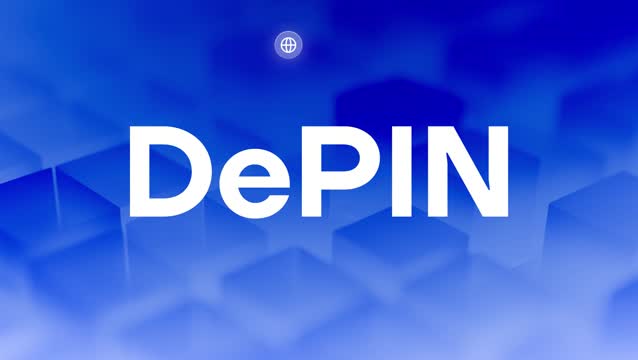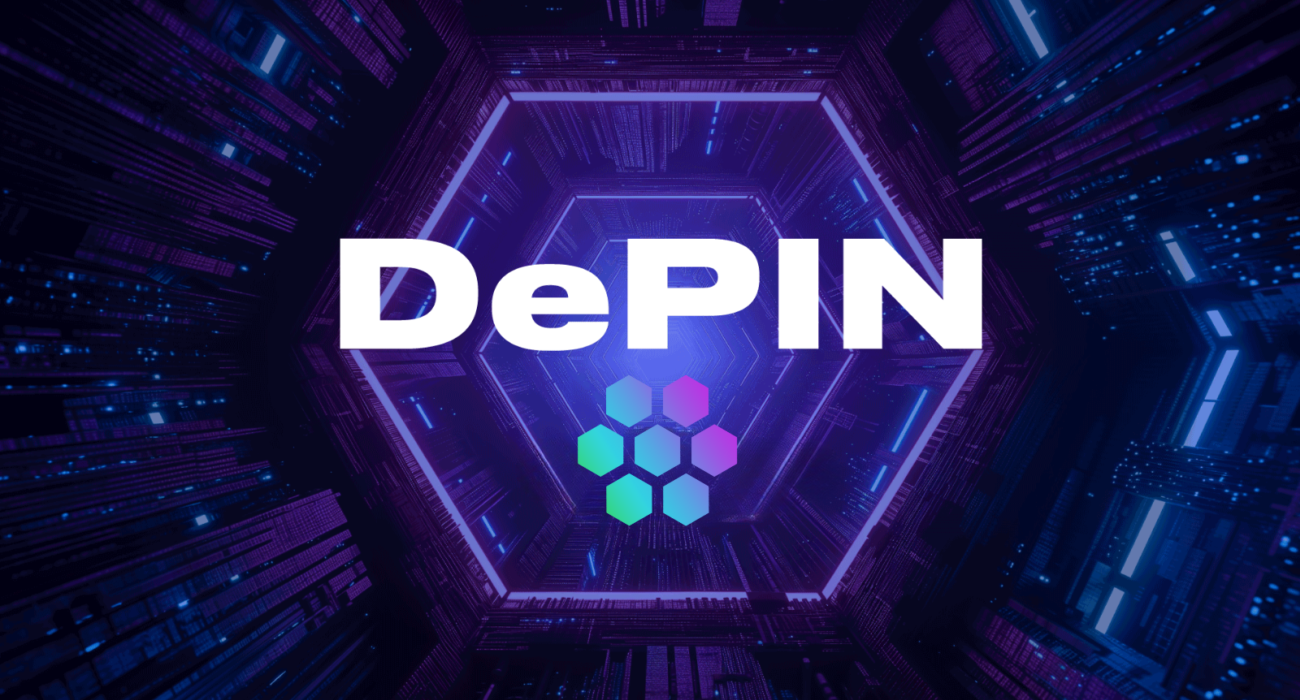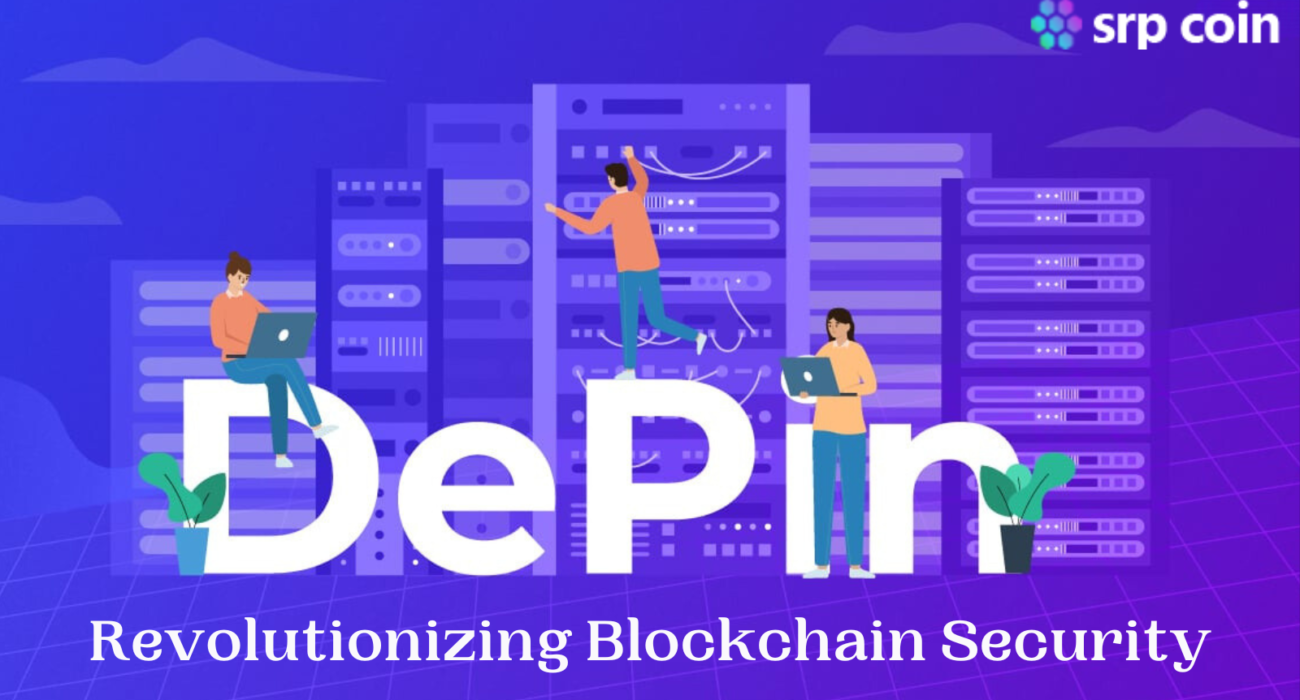DePIN Revolutionizing Blockchain Security. As blockchain technology continues to shape the digital world, security concerns around data protection, hacking, and centralization are becoming more prevalent. Traditional blockchain security methods, while effective, are not entirely immune to breaches and vulnerabilities. Enter DePIN (Decentralized Physical Infrastructure Networks) — a groundbreaking solution poised to transform blockchain security.
DePIN represents a new wave of innovation, combining decentralized physical infrastructure with the inherent security strengths of blockchain technology. It offers a way to secure the blockchain network not just digitally, but through real-world physical infrastructure. This approach adds a new layer of resilience, making blockchain systems more robust than ever before.
Understanding Blockchain Security
To fully appreciate how DePIN revolutionizes blockchain security, we first need to understand what blockchain security is and why it is essential.
Blockchain security is the framework that ensures the integrity, confidentiality, and availability of data within blockchain networks. This is achieved through cryptographic methods, consensus mechanisms like Proof of Work (PoW) or Proof of Stake (PoS), and decentralization. However, despite these strong security measures, vulnerabilities still exist.
Challenges in Traditional Blockchain Security
Although blockchain technology is more secure than traditional centralized systems, it isn’t perfect. Centralization within certain aspects of blockchain infrastructure, such as the reliance on cloud providers or specific server locations, can create security gaps. Hackers target these vulnerabilities, exploiting them to carry out attacks like 51% attacks or double-spending.
This is where DePIN comes into play, offering a more secure, decentralized solution that extends beyond virtual security.
What is DePIN?
DePIN stands for Decentralized Physical Infrastructure Networks. It is a decentralized network built on physical infrastructure, combining the benefits of blockchain with real-world resources such as servers, storage, and computational power distributed across various locations.
Unlike traditional blockchains that rely purely on digital networks, DePIN networks employ physical assets to build a secure and decentralized ecosystem. These assets are owned and operated by individuals or companies, contributing to the network’s decentralization.
Key Features of DePIN
- Physical and Digital Integration: DePIN bridges the gap between physical infrastructure and blockchain technology, making it a truly decentralized system.
- Decentralized Nodes: Just like blockchain has digital nodes, DePIN has physical nodes that operate independently, ensuring security.
- Community Ownership: DePIN allows individuals to participate by owning a piece of the infrastructure, enhancing decentralization.
How DePIN is Revolutionizing Blockchain Security
The impact of DePIN in revolutionizing blockchain security cannot be overstated. By integrating physical resources into blockchain networks, DePIN significantly boosts the security and reliability of the system.
1. Enhanced Physical Security
DePIN networks utilize physical nodes scattered globally to support blockchain systems. These physical infrastructures make it incredibly difficult for attackers to pinpoint or compromise the network. The decentralization of physical resources ensures that the network is resistant to attacks on a single point of failure.
In simple terms, hackers can no longer target just one server or node to gain access; they would need to breach numerous physical locations, which is virtually impossible.
2. Decentralization at Scale
DePIN takes the idea of decentralization to the next level by moving beyond just virtual networks and employing real-world physical assets. With a more decentralized network of infrastructure, trust and resilience in the system grow exponentially.
This makes DePIN revolutionizing blockchain security an ideal solution for businesses and individuals looking to safeguard their data in decentralized systems.
3. Tamper-Proof Data Storage
One of the biggest security concerns in the blockchain space is tampering with data or records. With DePIN, tamper-proof data storage becomes a reality. Since data is stored and processed across numerous physical nodes in different locations, it is almost impossible for a hacker to alter or manipulate the information without detection.
4. Real-Time Monitoring
DePIN networks often come with real-time monitoring capabilities, enabling users and stakeholders to monitor the security status of their networks continuously. This reduces the response time to any security threats, making the system even more robust.
Investing in SRP Token not only supports the innovative DePIN revolution but also positions you at the forefront of enhanced blockchain security. Join us in shaping a safer digital future and be part of this transformative journey!
Advantages of DePIN Over Traditional Blockchain Security Models
DePIN revolutionizing blockchain security brings a host of benefits over traditional blockchain security models. Here are some of the key advantages:
1. Improved Scalability
Traditional blockchain systems often face scalability issues due to the high computational demands of consensus mechanisms like Proof of Work (PoW). DePIN, however, distributes the load across its decentralized physical infrastructure, making the system more scalable and efficient.
2. Lower Reliance on Centralized Resources
One of the weaknesses of traditional blockchain networks is their reliance on centralized cloud providers for storage and computational power. DePIN eliminates this reliance by distributing the infrastructure among various physical nodes, reducing the risk of a single point of failure.
3. More Secure Peer-to-Peer Transaction Validation
In DePIN networks, peer-to-peer transactions are validated through a distributed network of physical and digital nodes. This makes it more secure, as the validation process is decentralized and spread across numerous independent nodes.
Real-World Use Cases of DePIN in Blockchain Security
The concept of DePIN revolutionizing blockchain security holds great potential, though its current application across industries is still emerging. While DePIN and blockchain technology are not yet a major part of sectors like finance, healthcare, and supply chains, they are expected to play a crucial role in these industries in the future. As organizations seek higher levels of security, DePIN will become increasingly important.
Finance Industry
Although DePIN is not yet widely implemented in the financial sector, its potential to enhance transaction and data security is significant. Once integrated, decentralized physical networks will provide tamper-proof solutions for sensitive financial information, ensuring secure and traceable transactions. This future adoption is expected to reduce fraud and make financial systems more resilient.
Healthcare
Currently, the healthcare industry is not fully utilizing DePIN, but the future looks promising. As healthcare data becomes increasingly digitized, DePIN’s decentralized infrastructure could play a vital role in protecting patient records and medical data. Once adopted, it will ensure that this sensitive information is securely stored and cannot be easily tampered with, greatly reducing the risk of data breaches.
Supply Chain
DePIN has yet to make its mark on supply chain management, but the future will likely see its integration for higher security. Supply chains involve multiple stakeholders and vast amounts of data, all of which need to be safeguarded from cyber threats. With DePIN networks, participants in the supply chain will soon be able to access secure, real-time data without worrying about attacks, providing a much-needed layer of protection in an increasingly complex system.
The Future of DePIN in Blockchain Security
As blockchain technology continues to evolve, the role of DePIN in revolutionizing blockchain security will only grow. The decentralized nature of DePIN, combined with its physical infrastructure, makes it a perfect fit for securing blockchain networks in the future.
1. Wider Adoption Across Industries
DePIN is set to be adopt across various industries, from finance to healthcare, due to its ability to provide enhanced security and scalability. As businesses realize the potential of DePIN, we can expect more companies to incorporate it into their operations.
2. Integration with Emerging Technologies
As technologies like AI and IoT continue to advance, they will likely integrate with DePIN to further secure their networks. The combination of AI’s ability to detect threats and DePIN’s decentralized infrastructure will create an even more secure system.
3. Future Predictions
Experts predict that DePIN will not only secure blockchain systems but also pave the way for more decentralized applications (dApps) to be built on blockchain technology. This will lead to a more secure, scalable, and decentralized internet.
Conclusion
In conclusion, DePIN is revolutionizing blockchain security by providing a decentralized, physically distributed infrastructure that enhances security, scalability, and resilience. By eliminating central points of failure and ensuring tamper-proof data storage, DePIN is making blockchain networks more secure than ever before.
As industries continue to adopt blockchain technology, the importance of securing these networks cannot be ignored. DePIN offers a solution that not only addresses these security concerns but also paves the way for the future of decentralized systems. For anyone looking to build or invest in blockchain networks, adopting DePIN is not just a choice — it’s a necessity.

 China
China Russia
Russia India
India









